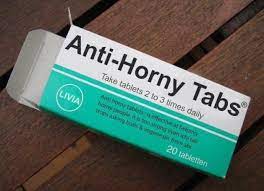Anti Horny Pills: Everything You Should Know

Merriam-Webster defines the word horny as “excited sexually” or “desiring sexual gratification.” That sounds about right. Feeling horny and dealing with newly minted sexual desires can be simultaneously overwhelming, confusing, and exciting. In addition to craving makeouts and experiencing tingles, you’re more aware than usual, fantasies are running wild through your head, and you might even be feeling more stress.
Does Anti Horny pills exist?
Anti Horny pills memes are all over the internet. However, anti Horny tabs or tablets as a medication does not exist. Understandably, the market for voluntary anaphrodisiacs that decrease sex drive never exactly became mainstream. But libido-lowering supplements sold online provide a range of holistic options for those who want to lower their sex drive. Not all anaphrodisiacs work, and even those that do have some success in lowering libido shouldn’t be taken without first consulting a doctor.
In modern times, sex offenders have sometimes been prescribed anti-androgens to lower their sex drive in the hopes that it will reduce their risk of offending again (although side-effects such as growing breasts tend to limit compliance).
According to Healthline, if sexual thoughts are making it hard to concentrate on the task at hand, the following strategies can help you redirect your mind.
Set the thoughts aside for later
When horny thoughts come up, acknowledge them briefly and then mentally set them aside. This doesn’t mean you reject or suppress the thought, which can lead to feelings of guilt or shame later on.
By accepting the thought and committing to exploring it later, you’re validating that thought as well as your needs. This can help it fade into the background and allow you to return your attention to the task at hand.
Take a short break
If you’ve studied a little too long or spent more time on a repetitive work task than you intended, your thoughts may start to wander. Interrupt fatigue and boredom by giving yourself a brief break. Get a drink, have a snack, take a walk, or try all three.
Taking care of physical needs can have a positive impact on emotional mindset. Even briefly changing your environment may help you “reset” your thoughts and get them back on track.
Get it out of your system
Can’t stop thinking about what your partner did last night? Fantasizing about what you want to try next time?
If you can’t escape these thoughts, grab a piece of paper and write the details down (just make sure you’re in a place where it’s safe to scribble these thoughts). Save the paper to give to your partner when you see them next.
This strategy can distract you in the moment and help foster deeper connection with your partner later — especially if you’ve written down something you haven’t felt bold enough to say in person.
Just avoid the sexting, which will probably leave you constantly checking your phone for replies.
Put on some music
If you’re driving, trying to complete a report, or doing something else that needs your full attention, music can be a good way to quiet distracting thoughts.
When to get help
Sometimes, unwanted sexual thoughts or desires may be a sign of something worth exploring with a therapist that specializes in human sexuality.
You feel shame or guilt
It’s totally normal for people who grew up in sexually restrictive religions or cultures to need some extra help accepting their feelings. Even if you didn’t grow up this way, you might still have some lingering shame.
A therapist can help you:
- learn more about healthy sexuality and behavior
- explore ways to get in touch with your sexuality
- work through any suppressed desires affecting your romantic relationships
You can’t control your thoughts
Do you ever carry specific actions or rituals to help you get rid of an unwanted sexual thought? This can be a sign of obsessive-compulsive disorder (OCD). If you have OCD symptoms, it’s important to talk to a therapist who can help you explore treatments.
Therapy can also help you cope with intrusive thoughts, which can happen with OCD. They may involve disturbing sexual images that don’t cause horniness, including illegal or harmful sexual practices. Having these thoughts doesn’t mean you’re bad or that you’ll act on them, but they can still be deeply upsetting.
In some cases, difficulty managing horniness or spending more time masturbating and having sex than you want to can be symptoms of hypersexuality, or compulsive sexual behavior. If you notice these signs, talking to a compassionate therapist can be a good start.
Conclusion
Your mind is your own personal space, and it’s normal for sexual thoughts to pass through on occasion (or even regularly).
You don’t necessarily have to get rid of these thoughts. If they don’t negatively affect what you’re doing, distract you in a dangerous way, or cause you or anyone else distress, there’s no need to feel concerned about feeling horny.
You may find useful information on: Does Proviron Increase Libido?





